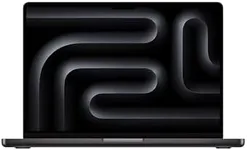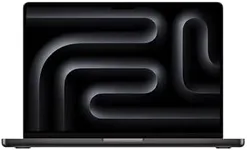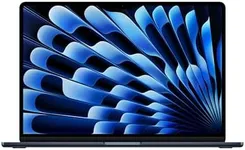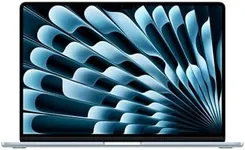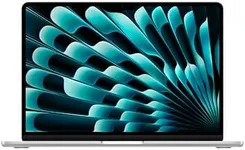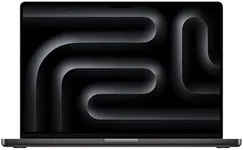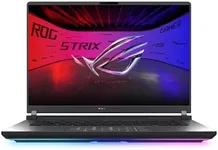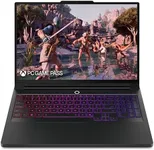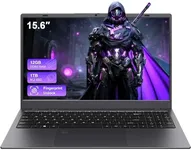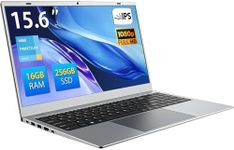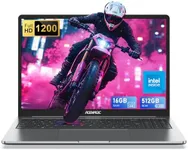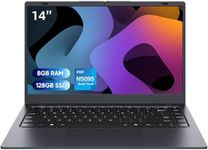Buying Guide for the Best Engineering Laptops
Choosing the right engineering laptop is crucial for ensuring that you have the power and capabilities needed to handle demanding tasks such as 3D modeling, simulations, and software development. When selecting an engineering laptop, it's important to consider several key specifications that will impact performance, usability, and overall experience. Understanding these specs will help you make an informed decision that aligns with your specific needs and preferences.Processor (CPU)The processor, or CPU, is the brain of your laptop and is responsible for executing instructions and processing data. For engineering tasks, a powerful CPU is essential to handle complex calculations and multitasking. CPUs are typically divided into different segments based on their performance: entry-level (e.g., Intel Core i3, AMD Ryzen 3), mid-range (e.g., Intel Core i5, AMD Ryzen 5), and high-end (e.g., Intel Core i7/i9, AMD Ryzen 7/9). For most engineering applications, a mid-range to high-end CPU is recommended to ensure smooth performance and quick processing times.
Graphics Card (GPU)The graphics card, or GPU, is responsible for rendering images, videos, and animations. For engineering students and professionals who work with CAD software, 3D modeling, or simulations, a dedicated GPU is crucial. GPUs can be integrated (built into the CPU) or dedicated (separate from the CPU). Integrated GPUs are suitable for basic tasks, while dedicated GPUs (e.g., NVIDIA GeForce, AMD Radeon) offer significantly better performance for graphics-intensive applications. Choose a laptop with a dedicated GPU if your work involves heavy graphical processing.
RAM (Memory)RAM, or memory, is where your laptop stores data that is actively being used or processed. More RAM allows your laptop to handle more tasks simultaneously and improves overall performance. Engineering software can be memory-intensive, so having sufficient RAM is important. Laptops typically come with 8GB, 16GB, or 32GB of RAM. For engineering purposes, 16GB is generally a good starting point, but 32GB may be necessary for more demanding applications or future-proofing your device.
StorageStorage refers to where your laptop saves all your files, applications, and operating system. There are two main types of storage: Hard Disk Drives (HDD) and Solid State Drives (SSD). SSDs are faster, more reliable, and consume less power compared to HDDs. For engineering laptops, an SSD is highly recommended for quicker boot times, faster file access, and overall better performance. Storage capacity is also important; 256GB is the minimum you should consider, but 512GB or 1TB is preferable if you work with large files or need to store a lot of data.
DisplayThe display is the screen of your laptop, and its quality can significantly impact your user experience. Key factors to consider include screen size, resolution, and color accuracy. Engineering tasks often benefit from larger screens (15 inches or more) and higher resolutions (Full HD or higher) for better detail and more workspace. Color accuracy is important for design and modeling work. Look for laptops with IPS panels for better color reproduction and wider viewing angles.
Battery LifeBattery life determines how long your laptop can run on a single charge. For engineers who need to work on the go or in environments where power outlets are not readily available, a longer battery life is beneficial. Battery life can vary widely depending on the laptop's hardware and usage. Aim for a laptop that offers at least 6-8 hours of battery life under normal usage conditions to ensure you can work without frequent interruptions.
Build Quality and PortabilityBuild quality refers to the durability and sturdiness of the laptop. Engineering laptops should be robust enough to withstand daily use and occasional travel. Portability is also important, especially if you need to carry your laptop between classes, meetings, or job sites. Look for laptops with a solid build, preferably with metal chassis, and consider the weight and thickness. A balance between performance and portability is key; ultrabooks offer lightweight designs but may compromise on performance, while heavier laptops may offer better specs but are less portable.
ConnectivityConnectivity options include the various ports and wireless capabilities of your laptop. Engineers often need to connect to external devices such as monitors, projectors, and peripherals. Ensure your laptop has a good selection of ports, including USB-C, USB-A, HDMI, and possibly an Ethernet port for wired internet connections. Additionally, consider laptops with the latest Wi-Fi standards (Wi-Fi 6) and Bluetooth for better wireless performance and compatibility.
